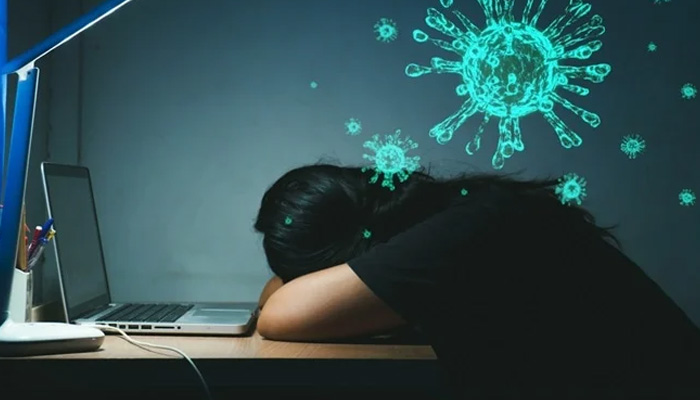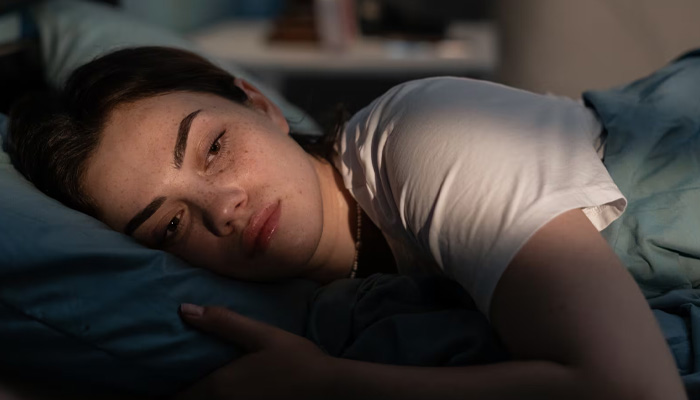
(Spoiler: It’s More Than Just Feeling Tired)
We’ve all pulled a late night or two—maybe for work, maybe for Netflix. But if missing sleep becomes your regular routine, your body starts sending serious warning signs. And it’s not just about grogginess or under-eye bags. Sleep deprivation affects almost every system in your body, from your brain and heart to your metabolism and immune system.
Let’s break down exactly what happens to your body when you don’t get enough shut-eye—and why prioritizing sleep might be the healthiest move you can make this year.
1. Your Brain Slows Down—and So Does Your Thinking

Ever tried to focus after just 3 or 4 hours of sleep? Your thoughts get foggy, your memory turns to mush, and basic decisions suddenly feel complicated. That’s because sleep is when your brain processes information, stores memories, and clears out waste proteins that build up during the day.
Lack of sleep directly impacts:
Attention span
Problem-solving ability
Short-term memory
Emotional control
In fact, people who consistently get less than 6 hours of sleep show similar cognitive performance to someone who’s legally drunk. Ouch.
2. Mood Swings? Oh Yes.
Sleep-deprived brains are more reactive and less rational. You might find yourself snapping at your partner for leaving the sponge in the sink… again. Or crying over a sad commercial. That’s because sleep affects the amygdala—the part of your brain that handles emotions.
Long-term sleep loss is linked to higher risks of anxiety and depression. So if you’re feeling extra irritable or down lately, don’t just blame the weather—check your sleep habits, too.
3. Your Immune System Takes a Hit

Think of sleep as your body’s overnight maintenance shift. During deep sleep, your body produces cytokines—proteins that help fight infections, inflammation, and stress. But if you’re running on empty, your body can’t produce enough of them.
That’s why people who sleep less than 6 hours a night are more likely to catch colds and take longer to recover from illness. You might even notice slower wound healing. So yes, your grandma was right: rest really is the best medicine.
4. Heart Trouble on the Horizon
Your heart needs rest just like the rest of your body. During sleep, your blood pressure drops and your heart gets a break. Without enough sleep, your heart keeps pumping hard without recovery time.
The result? Increased risk of:
High blood pressure
Irregular heartbeat
Heart attack
Stroke
Studies have shown that just one week of sleeping five hours a night can raise your risk factors for cardiovascular disease. Long-term? It gets worse.
5. Metabolism and Weight Gain

Craving junk food after a poor night’s sleep? You’re not imagining it. Sleep deprivation messes with the hormones that regulate hunger—ghrelin (which tells you to eat) and leptin (which tells you you’re full).
When you don’t sleep:
Ghrelin goes up
Leptin goes down
Willpower takes a dive
Add in lower energy and slower metabolism, and you’ve got a recipe for weight gain—even if your diet hasn’t changed much.
6. Poor Sleep = Poor Skin
Nope, “beauty sleep” isn’t just a cliché. During sleep, your body boosts blood flow to your skin and produces collagen, which keeps it firm and fresh. Skip sleep, and you’ll notice:
Dull complexion
Dark circles
More fine lines
Slower skin healing
That “tired look” after a sleepless night? It’s a real thing, and your skin can’t fake being well-rested.
7. Your Hormones Go Haywire

Sleep is when your endocrine system (aka your body’s hormone control center) resets. If you’re constantly missing sleep, you might throw your hormones out of balance—affecting everything from fertility to stress response.
Cortisol (your stress hormone) stays high, which can make you feel wired but tired. In men, testosterone levels may drop. In women, irregular periods or worsened PMS symptoms can show up.
8. Your Risk of Chronic Disease Shoots Up
Here’s the long-term danger zone. Chronic sleep deprivation has been linked to:
Type 2 diabetes
Obesity
Dementia
Cancer
One study even found that people who sleep less than 6 hours are 12% more likely to die prematurely. That’s a sobering stat—but also a wake-up call.
So… How Much Sleep Do You Actually Need?
It depends on age and individual factors, but here are some general guidelines:
Adults: 7–9 hours
Teens: 8–10 hours
Children: 9–12 hours
And quality matters as much as quantity. Deep, uninterrupted sleep is where the real magic happens—restoring your mind, body, and emotional well-being.
Tips to Sleep Smarter Tonight

If you’ve been struggling to get consistent rest, try these simple fixes:
Stick to a regular bedtime—even on weekends.
Limit screen time an hour before bed.
Keep your bedroom cool, quiet, and dark.
Avoid caffeine after 2 PM.
Don’t bring work into the bedroom (yes, that includes email).
Even 15- to 30-minute improvements in your sleep habits can start to shift things in the right direction.
Bottom Line: Sleep Isn’t a Luxury. It’s a Necessity.
Skipping sleep might feel like you’re squeezing more out of your day—but you’re actually draining your body’s resources. The next time you’re tempted to binge one more episode or burn the midnight oil, ask yourself: “Would I be better off just going to bed?”
Your brain, your body—and your future self—will thank you.
